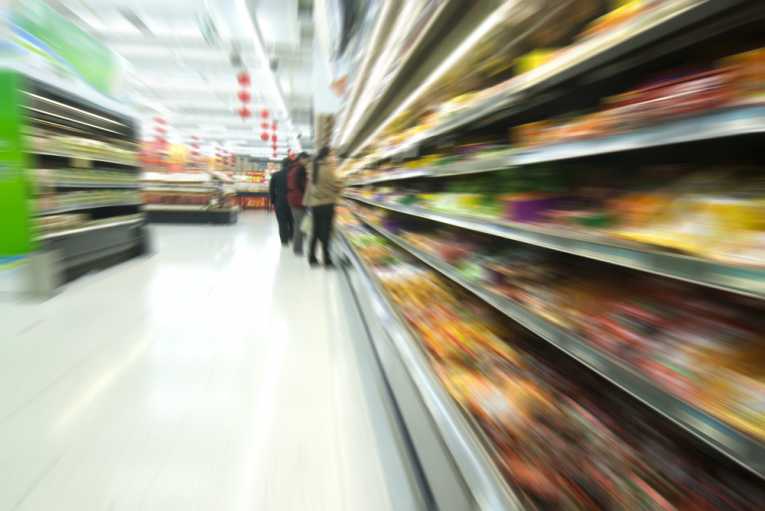Many of the UK's best-known retailers are making progress on cutting waste, energy and water use, according to a new report. The eco-friendly initiatives are not only good for the planet, but makes good business sense, says the British Retail Consortium (BRC).
The BRC says its retailers have exceeded targets to date for reducing waste and delivery emissions, are on target for cutting building and refrigeration targets and are making progress with customer and supplier matters.
But Forum for the Future and WWF say retailers must not be complacent and there are still many challenges ahead.
Bob Gordon, the BRC's Head of Environment, says, "Despite current economic difficulties, retailers are continuing to work with their suppliers to meet tougher sustainability goals.
"This BRC assessment shows that the UK has the most progressive retail sector in the world and crucially that work with consumers and environmental groups is driving standards up. Some previous targets have been met ahead of schedule but investment continues, protecting consumers' wallets and the planet."
Stephen Robertson, Director General of the BRC, says, "Together, we can build a competitive and sustainable economy that continues to meet our customers' needs in ways that improve, rather than degrade, our environment."
Caroline Spellman, Secretary of State for Environment, Food and Rural Affairs, says, "Retailers are uniquely placed to help consumers understand how their actions, behaviours and attitudes can make a real difference and support change.
"The On-Pack Recycling Label, Waste & Resources Action Programme (WRAP's) Love Food Hate Waste initiative and the EU Energy Label scheme are some examples of where retailers have used their influence to help consumers make better environmental choices."
The report, A Better Retailing Climate: Towards Sustainable Retail is being launched at the House of Commons today (Tue 31 January) and builds on the commitments in the 2008 report, A Better Retailing Climate.
The report's results include:
Waste: Retailers are committed to reduce waste to landfill to below 15% by 2013, but exceeded it in 2011, sending just 14% of waste to landfill in 2011 - down from 45% in 2005
Transport: Retailers promised to cut delivery emissions from 2005 levels 15% by 2013. By 2011, they had achieved a 23% reduction
Buildings: Retailers pledged to reduce energy-related emissions from buildings by 25% on 2005 levels and allowing for growth. They have until 2013 to make the target and by 2011 they had cut emissions by 20%
Refrigeration: Retailers committed to halve emissions from refrigeration by 2013, relative to floor space to allowing for business growth. By 2011, they were 37% lower
Customers and suppliers: Traders are working to reduce their environmental impact, despite price volatility and economic uncertainty
Non-profit sustainable organisation, Forum for the Future and WWF were among a group of environmental bodies invited to comment on the findings.
Forum for the Future recommends that UK retailers should build on the progress made in addressing direct environmental impacts by developing quantitative and ambitious targets for all aspects of sustainability, including biodiversity, supply chain and consumer use.
"Retailers need to move from supporting their customers to be sustainable, to leading them and making sustainable living much easier than it is today.
"There is recognition of the need for a 'transformative change in current business practice', for example shifting from selling products to services. These are bold words, although it isn't clear how the sector is preparing for this shift."
It also recommends that the UK retail sector thinks now about alternative, sustainable business models, and starts to experiment with these new models in earnest.
"The rapid growth of online retail and the explosion of peer-to-peer business models is an indication of how quickly business practice can change."
Dax Lovegrove, WWF's Head of Business & Industry, outlines WWF's four suggestions to help retailers move forward:
Sustainable production: Businesses will achieve more resilient supply chains by understanding the impact of sourcing practices, being an active participant in relevant roundtable and certification schemes and committing to source 100% certified sustainable supplies around key commodities.
Sustainable Consumption: Production improvements alone will not bring sustainable retailing - a change in consumer behaviour is also required. For example, on food, WWF-UK's Livewell work shows greener diets are essential for the food system to start operating within the world's natural limits. The same is true for consumer goods.
Sustainability plans: Companies will reap rewards by developing and promoting stand-out plans that incorporate leading edge commitments around production and consumption, decoupling, restorative aims, collaborative action and integrated water stewardship.
Sustainability Innovation: Innovation and experimentation with more sustainable business models will bring further resilience ahead of inevitable changes on a grand scale within this sector. For example, collaborative consumption is increasingly explored to support the move from a 'throw away' to a 're-use' society.
The BRC says it will continue to report on progress and look at new sector-stretching commitments beyond 2013. "Despite the sector's leading position, we recognise that we are in the early stages on the journey to sustainability and that substantial change is yet to come."
A total of 25 retailers across 29 brands have signed up to the A Better Retailing Climate commitments. They are: Argos, ASDA, ASOS, Boots, Comet, Debenhams, Early Learning Centre, Figleaves.com, Fortnum & Mason, Game, Homebase, JD Williams, John Lewis, Land's End, Lloyd's Pharmacy, Marks & Spencer, Morrisons, Mothercare, Next, Sainsbury's, Shop Direct Group, Tesco, The Body Shop, The Co-operative Group, TK Maxx, Waitrose, WH Smith, Wickes and Wilkinsons.
The full BRC - 'A Better Retailing Climate: Towards Sustainable Retail' report is available here as a PDF.










